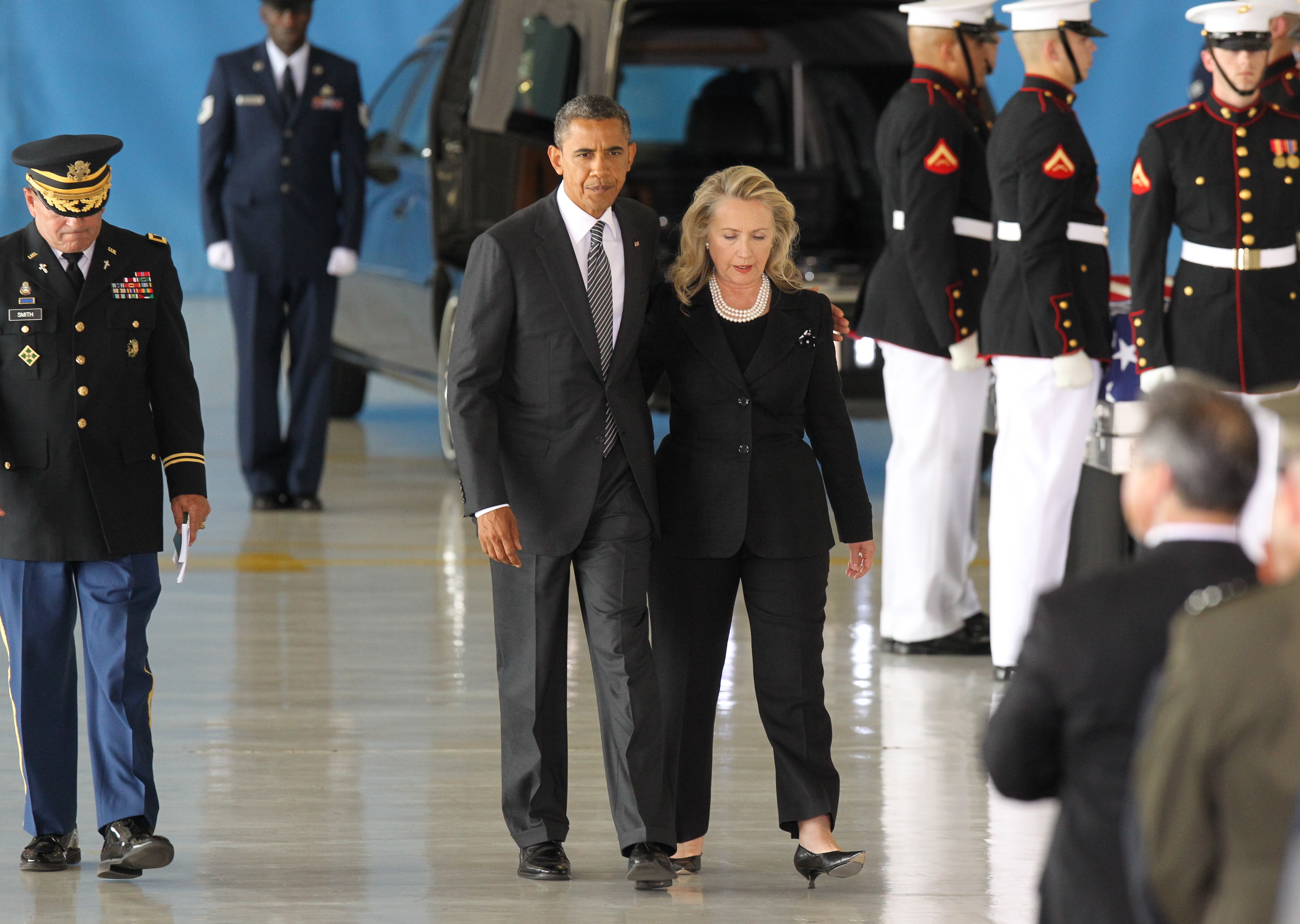Hillary Clinton's Libya disaster: Will Republican presidential hopefuls hold her accountable?
Will Republican presidential hopefuls hold her accountable?


A free daily email with the biggest news stories of the day – and the best features from TheWeek.com
You are now subscribed
Your newsletter sign-up was successful
Remember Libya? Of course not. As a refresher, Libya is a “country” formerly ruled by dictator, state-terror sponsor, and fashion plate Moammar Gadhafi. After the Egyptian government fell following mass protests in 2011, rebels in neighboring Libya rose up against Gadhafi. He slaughtered them. With internationalist cover provided by French humanitarian hawks, then Secretary of State Hillary Clinton and others urged Obama to intervene in that civil war. Bombs fell, Gaddafi was killed by militants. Clinton took a victory lap, touting her philosophy of “smart power.”
Today, as Hillary Clinton awaits her coronation as Democratic nominee for president, Libya is a disaster. Will anyone hold her accountable?
Here’s the latest. Last week, militants took over the Central Bank’s offices in Benghazi. The Central Bank had been described as the one functioning institution of government in the anarchic region. Mainly this bank took the proceeds of the nation’s oil wealth and distributed it to the ministers and militaries of the rival governments that claim sovereignty over Libya. The more Islamist government is based in Tripoli, the other in Tobruk. Ministers of these governments are paid whether or not they work, even as Libyans endure constant power outages.
The Week
Escape your echo chamber. Get the facts behind the news, plus analysis from multiple perspectives.

Sign up for The Week's Free Newsletters
From our morning news briefing to a weekly Good News Newsletter, get the best of The Week delivered directly to your inbox.
From our morning news briefing to a weekly Good News Newsletter, get the best of The Week delivered directly to your inbox.
Oil production in Libya is about one-eighth of its former national output, and is constantly harassed. This region has become one of the more exotic destinations in Islamist terror tourism. The instability has also spread to Mali.
In her memoir of her time as secretary of State, Clinton described her initial skepticism about intervening. She wrote:
The United States had spent the previous decade bogged down in long and difficult wars in Iraq and Afghanistan, and before we joined yet another conflict, I wanted to be sure we had thought through the implications. Would the international community, including Libya’s neighbors, unite behind this mission? Who were these rebels we would be aiding, and were they prepared to lead Libya if Gadhafi fell? What was the endgame here?
Clinton was convinced by a few factors. First was the support and even leadership of European powers, particularly France's Nicholas Sarkozy. Some support came from Arab nations. There was the impressive mien of Mahmoud Jibril, who would become an interim leader of Libya, stepping down just before civil war swallowed it whole. And then there was the brutality of Gadhafi’s attempt to quash the rebellion itself. The last was understandable in a visceral way, as the rebellion would inflict death on Gadhafi and his son.
But the questions Clinton says she asked herself before the intervention were never given plausible answers. They are certainly not answered in her sanitized version of events. Meanwhile, history has made a mockery of them. About the death of the American ambassador, which became a potential problem in domestic politics for her, Clinton merely describes her reactions, while informing us that she delayed the chance to “process the flood of emotions.” However, the disorder in Libya is costing thousands of lives on the ground and has threatened the region, particularly nearby Mali. If the intervention was meant to protect Libyans who wanted a decent government, it failed utterly.
A free daily email with the biggest news stories of the day – and the best features from TheWeek.com
Clinton had internal administration adversaries over this policy, including Vice President Joe Biden, who has mused about running for president. But his run, and with it the chance to air the Obama administration’s bloody laundry, seems remote.
Rand Paul has made a habit of mentioning Libya and Hillary Clinton as he staffs up for a crack at the Republican nomination. That’s to be expected, since it allows him to call on partisan anti-Clinton energies in support of a foreign policy that is considerably more dovish than the GOP norm. But the likely tack of potential candidates like Jeb Bush and Marco Rubio is to criticize the Obama administration, and Clinton in particular, as insufficiently committed to American action abroad.
Foreign policy usually plays an understated role in a general presidential election, particularly when there are no American troops dying, or the stakes are difficult to explain. No Republican can run a successful campaign asking suggestively, “Who lost Libya?” Even after the Benghazi disaster, the Republicans and their candidate Mitt Romney fumbled the issue in 2012. They never challenged the military intervention per se, but tried to induce in the public the Cold War kick-reflex against Democrats as weak in the face of America’s enemies. In that effort, Romney pushed himself into a humiliating loss in a debate over when President Obama used the words “act of terror” to describe the attack. It was a disaster.
My prediction is that absent Paul winning the nomination, Clinton will never again face a tough question about Libya. But as a matter of honesty for our nation, and justice for the people of Libya, she owes us her answers.
Michael Brendan Dougherty is senior correspondent at TheWeek.com. He is the founder and editor of The Slurve, a newsletter about baseball. His work has appeared in The New York Times Magazine, ESPN Magazine, Slate and The American Conservative.
